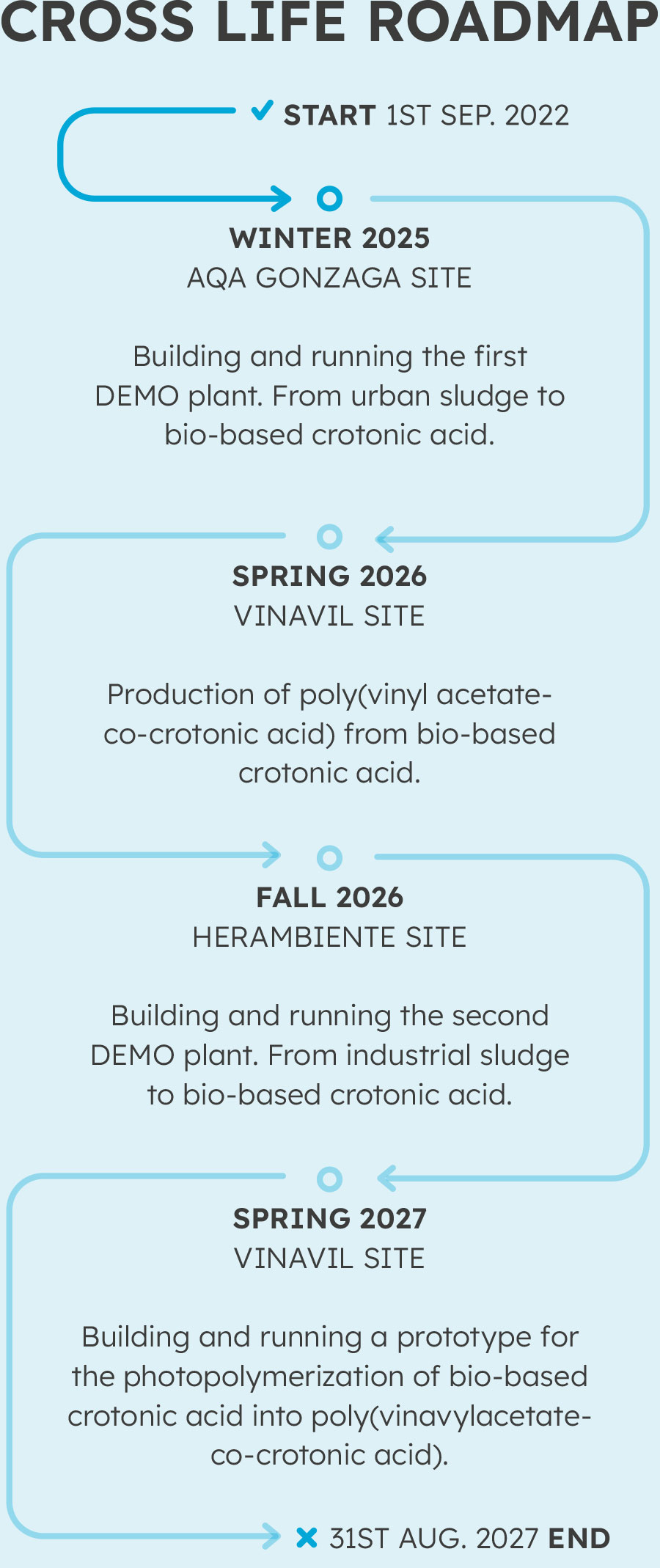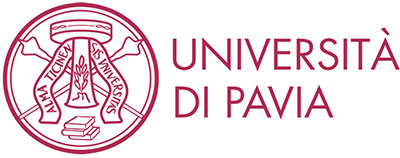CROSS-LIFE Project
CROtonic acid from Sewage Sludge LIFE21-ENV-IT-CROSS-LIFE

CONTEXT
Sludge treatment and management are complex and costly operations that cover 20-60% of the total operation cost of wastewater treatment plants. After stabilization and dewatering, sludge is either sent to landfills, directly reused in agriculture/composted, or incinerated.
The valorisation of sludge as feedstock for the synthesis of renewable chemicals/polymers is still lacking but it would be valuable in terms of circular economy and reduction of fossil resources exploitation.
The CROSS-LIFE project proposes an integrated technology for sludge management oriented to the dual aim of decreasing the volume of sludge to be treated at end-of-life and exploiting the sludge as a feedstock to produce bio-based crotonic acid and its co-polymer poly(vinyl acetate-co-crotonic acid) instead of using fossil sources.
OBJECTIVES
This objective will be achieved through innovative hybrid thermochemical-biological technologies that will be integrated in two DEMO plants, one fed with industrial sludge (Herambiente), and the other with sludge from the treatment of urban wastewater (AqA). Such technologies will increase by 30-40% the sludge dehydration result, allowing the reduction of sludge to be disposed of by 50-80% by volume.
This objective will be realized through the integration of a hybrid thermochemical-biological process that will convert a waste (Herambiente and AqA sludge) into a chemical (crotonic acid, one of Vinavil’s portfolio monomers). Such technologies will increase the bioavailability of carbon atoms of sludge, making them exploitable for biological and chemical transformations. Bio-based crotonic acid will be lastly polymerized by Vinavil into poly(vinyl acetate-co-crotonic acid), introducing a renewable monomer in a 100% fossil-based co-polymer.


PARTNER








The CROSS-LIFE project has been co-funded by the European Union under grant agreement n° 101074164. Views and opinions expressed are however those of the author(s) only and do not necessarily reflect those of the European Union or CINEA. Neither the European Union nor the granting authority can be held responsible for them.

